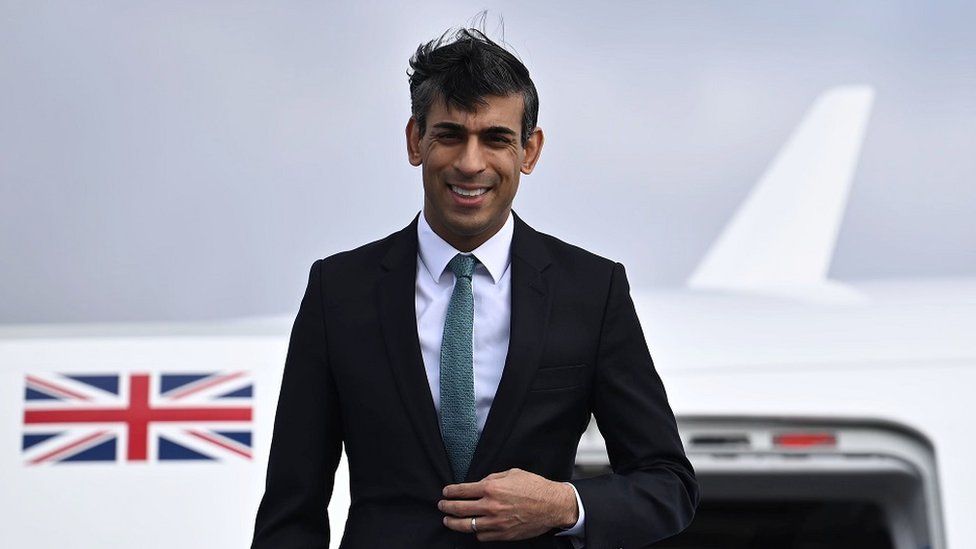
By Henry Zeffman & Chris Mason & Brian Wheeler
BBC News
Rishi Sunak is considering weakening some of the government’s key green commitments in a major policy shift.
It could include delaying a ban on the sales of new petrol and diesel cars and phasing out gas boilers, multiple sources have told the BBC.
The PM is preparing to set out the changes in a speech in the coming days.
There is no suggestion that Mr Sunak is considering abandoning the legal commitment to reach net zero carbon emissions by 2050.
But he is expected to declare that other countries need to bear more of the burden of dealing with climate change.
If Mr Sunak presses ahead with the plan it would represent a significant shift in the Conservative Party’s approach to net zero policy, as well as establishing a clear dividing line with the Labour Party.
According to multiple sources briefed on Downing Street’s thinking, Mr Sunak would use the speech to hail the UK as a world leader on net zero.
But he would also argue that Britain has over-delivered on confronting climate change and that other countries need to do more to pull their weight.
Some specifics of the speech are still thought to be under discussion, but as it stands it could include as many as seven core policy changes or commitments, documents seen by the BBC suggest.
First, the government would push the ban on the sale of new petrol and diesel cars – currently set to come into force in 2030 – back to 2035. The 2030 date has been government policy since 2020.
Second, the government would significantly weaken the plan to phase out the installation of gas boilers by 2035, saying that they only want 80% to be phased out by that year.
Third, homeowners and landlords would be told that there will be no new energy efficiency regulations on homes. Ministers had been considering imposing fines on landlords who fail to upgrade their properties to a certain level of energy efficiency.
Fourth, the 2026 ban on off-grid oil boilers will be delayed to 2035, with only an 80% phase out target at that date.
In addition, Britons will be told that there will be no new taxes to discourage flying; no government policies to change people’s diets; and no measures to encourage carpooling.
Mr Sunak is also likely to rule out what he sees as burdensome recycling schemes.
The government had reportedly been considering a recycling strategy in which households would have had “seven bins” – with six separate recycling bins plus one for general waste.
A Labour spokesperson said: “This is a total farce. The country cannot go on with a Conservative government in total disarray, stumbling from crisis to crisis.”Ministers need to urgently provide clarity on all eight of the policies reportedly up for review.”Only a Labour government can provide the stability and certainty Britain needs to thrive.”
Conservative MP Chris Skidmore. the former chair of the UK government’s net zero review, said diluting net zero policies would “cost the UK jobs, inward investment, and future economic growth that could have been ours by committing to the industries of the future”.
Householders “whose bills will remain higher as a result of inefficient fossil fuels and being dependent on volatile international fossil fuel prices” would ultimately pay the price, he added.
“Rishi Sunak still has time to think again and not make the greatest mistake of his premiership, condemning the UK to missing out on what can be the opportunity of the decade to deliver growth, jobs and future prosperity”, said the Tory MP.
But one senior Conservative MP, who did not wish to be named, told the BBC he is glad to see some “realism” from the PM on net zero.
On Thursday, the King will be on a State Visit to France, where he will host what is known as a Climate Mobilisation Forum.
The event convenes specialists in climate finance, and aims to help developing economies make adjustments to cut emissions.
The King will be accompanied by Foreign Secretary James Cleverly.








